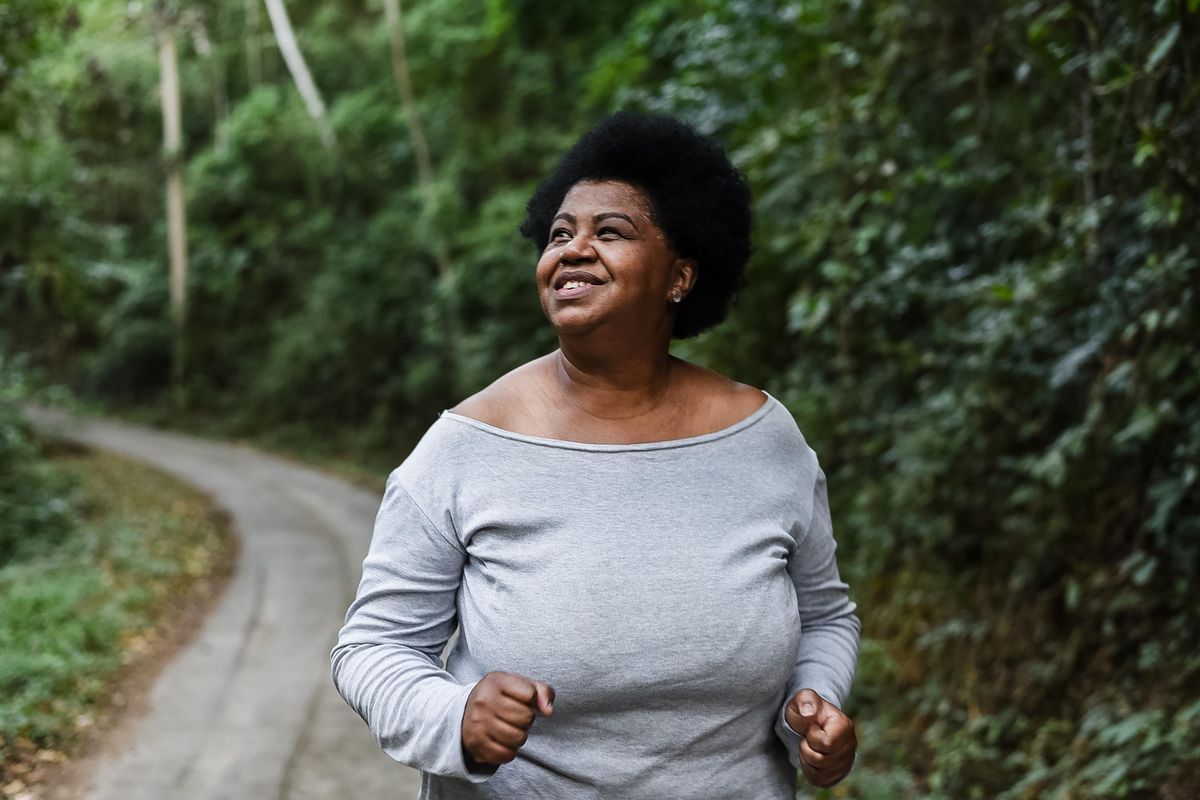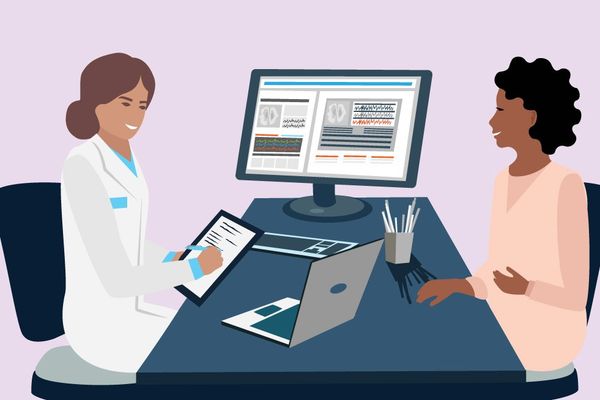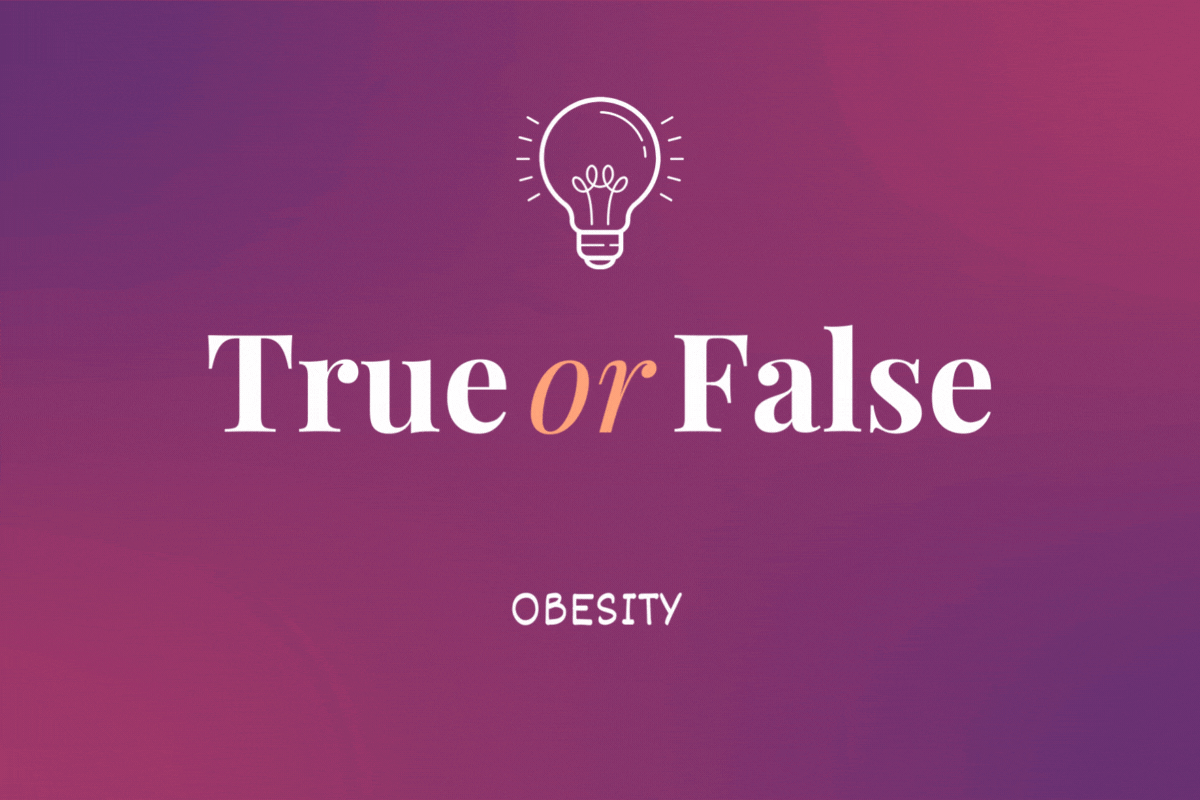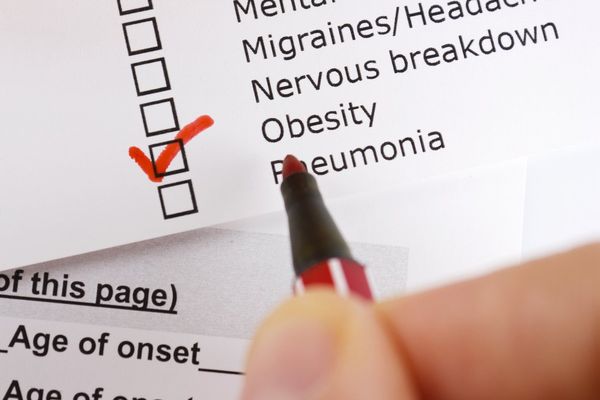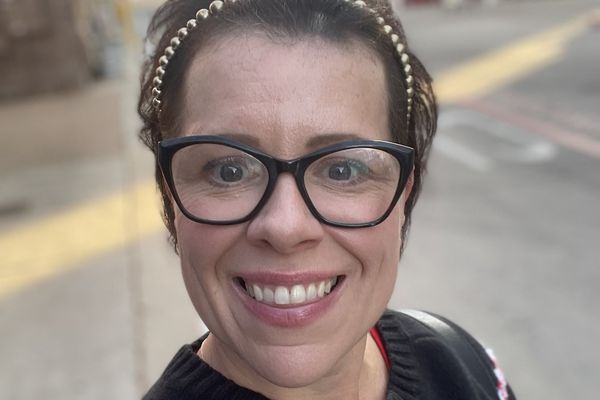This story is part of HealthyWomen's Reclaim Your Wellness partnership with Black Women's Health Imperative.
Patty Nece has had obesity her entire life. Finally, at 62, she has a supportive healthcare provider who's helped her move forward with her health goals — but that hasn't always been the case.
Thirty-five years earlier, Nece visited her gynecologist to renew her birth control prescription. Instead, her refill was denied because Nece had gained weight. She told HealthyWomen the doctor made her feel like the weight gain and prescription denial were her fault. "I was crying, and she walked out of the room," Nece recalled. The doctor never returned. "That's how these things get seared into you."
Nece has a laundry list of stories about healthcare providers blaming, belittling and berating her for her weight. Her worst experience, she said, happened when she visited an orthopedist for severe hip pain. Before she finished explaining her symptoms, he cut her off to say, "You need to lose weight."
Though Nece had recently lost 65 pounds, the orthopedist continued — asking if she'd ever considered weight loss surgery — until she cried. "He didn't even examine me," she said. "He didn't touch me except to shake my hand as he left."
He diagnosed Nece with "obesity pain," but a visit to a second specialist identified the real culprit: Her scoliosis, unrelated to her weight, had progressed so severely it was affecting her hip.
Today, Nece is the chairperson of the Obesity Action Coalition, an organization that focuses on raising awareness about obesity as a disease and empowering people who have obesity. "Bias in the medical profession can lead to misdiagnosis," she said. "When professionals don't look past weight, it can be deadly."
Nece is correct. Weight bias (blaming people for their weight) in health care has been shown to negatively affect people with obesity. Research suggests providers may spend less time with these patients, provide less health education and disrespect their lived experiences. This bias can also lead to misdiagnosis.
"Sometimes patients also report that their provider has attributed their presenting problem to their weight, even if their weight is not the reason they sought medical attention," said Dr. Rebecca Puhl, deputy director of Rudd Center for Food Policy & Obesity at the University of Connecticut.
Unfortunately, obesity bias can lead those who experience it to forgo medical care altogether — skipping annual exams, checkups and vaccinations, which can result in untreated illnesses. After Nece's experience with the orthopedist, she struggled through the pain for a month: "I didn't want to see another doctor after that."
An epidemic
Obesity, which has been defined as a disease since 2013, has become a national health crisis and worldwide epidemic. The World Health Organization reports that rates have nearly tripled since 1975. Last year, the Centers for Disease Control and Prevention said U.S. adult obesity rates exceeded 40% for the first time. The rate was highest among Black Americans, at 49.6%, which highlights an especially dangerous intersection in health care: systemic racism and obesity bias.
"People who experience multiple intersecting stigmatized identities may be particularly vulnerable to poor health and lower quality healthcare," Puhl said. On top of experiencing weight stigma, Black Americans with obesity are battling distrust of the healthcare system due to racism and race-based inequities.
Marissa Epstein, director of the University of Texas Nutrition Institute and member of HealthyWomen's Women's Health Advisory Council, added that, for Black Americans, obesity isn't an isolated issue. "Systemic health disparities that burden minority populations are interconnected, from poverty to racism to education to poor access to health care."
Because obesity increases the risk of cardiovascular diseases, diabetes, musculoskeletal disorders and some cancers — not to mention contracting Covid-19 and becoming sicker and potentially dying from it — it's crucial that healthcare providers (HCPs) overcome bias to better support patients with obesity.
Tips for patients
Bias toward people with obesity in health care can take different forms. It can include insensitive communication from providers, but Puhl noted it's not always overt. Providers, she said, may even perceive patients with obesity to be less adherent to medications compared to thinner patients.
To ensure supportive care, people with obesity should feel empowered to shop around. "You don't have to select the first provider you meet," Epstein said. "Look for someone with whom you can have a real conversation, who treats you with the respect and dignity you deserve."
Prior to a medical appointment, Puhl recommends writing down questions and identifying which issues you want to talk about related and unrelated to your weight. Bringing a friend or family member who can help advocate for you is also an option. If an HCP suggests a treatment or procedure you're uncomfortable with, speak up, Puhl advised. "It is important to voice your concern. You can ask if there are other choices and options."
What providers need to know
For patients with obesity, fear of providers reinforcing shame and false judgments makes it difficult to discuss weight. Therefore, how it's addressed in a healthcare setting is crucial. Nece said it could be as simple as asking patients if they're open to discussing their weight — and accepting the answer.
If they are open to a discussion, it's important for HCPs to acknowledge the many factors that contribute to obesity. During the "Reclaim Your Wellness" webinar on February 19, 2021, hosted by HealthyWomen and the Black Women's Health Imperative, Dr. Fatima Stanford, an obesity medicine physician at Massachusetts General Hospital, discussed using a holistic approach.
"When I'm talking to my patients that actually have this disease of obesity, I look at food, I look at activity — but I have to look at the whole person. I have to look at their family history. I have to look at issues related to medications that they may have been prescribed for other issues that may be causing weight gain. I need to be looking at all of these factors and then using this information to inform how I can individualize and personalize care for that person sitting in front of me," she said.
Using the correct language is another important tool because certain terms can be stigmatizing. Puhl suggested using neutral words like "weight," "high body weight" or "BMI," rather than "obese" or "fat." It's good to ask patients what terms they prefer when discussing body weight. Once using proper language, providers need to avoid placing blame and negative judgment on patients. Puhl said to avoid making assumptions about patients' motivation, discipline or health behaviors based on their size and suggested patient-centered approaches like motivational interviewing.
"I recommend that providers focus on the person with kindness and respect while being frank with their patients about obesity itself," Epstein said. These conversations should be respectful and straightforward.
Nece, however, hopes providers educate themselves on obesity and treatments available that go beyond just lifestyle changes and include medications and surgery.
"It's important for us to recognize that we have a range of tools and therapies that are evidence-based, meaning we have studied them time and time again," Stanford said.
"Medical professionals would tell me you need to lose weight," Nece said. "But offers of help were few and far between." Nece asks providers to flip weight bias on its head and say to themselves, "'I don't know if this person has tried everything they could and they need my help.' That would create a whole different mindset going into it."
This resource was created with support from Novo Nordisk.
- How to Support a Loved One Living with Obesity ›
- Changing How We Talk About Obesity — A Conversation with Dr. Sowa ›
- The Intersections of Weight Stigma, Mental Wellbeing & Health Disparities - HealthyWomen ›
- Obesity Among Black Women: Fighting the Disease Through Community - HealthyWomen ›
- Medicare and Obesity - HealthyWomen ›

